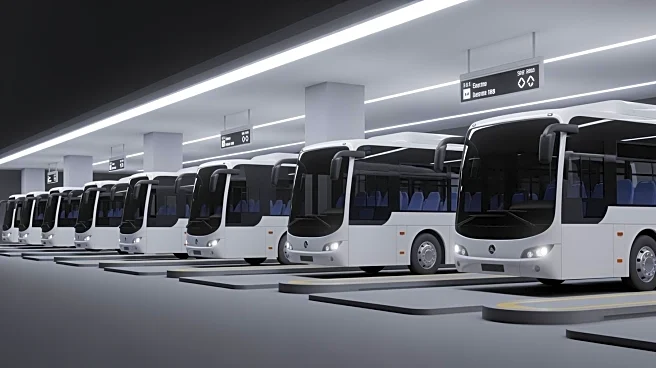What's Happening?
The UK government has announced the extension of a pilot scheme to Hertfordshire, aimed at giving councils more control over local bus services through a franchising model. This initiative, supported by a £360,000 grant, allows councils to decide routes,
timetables, and fares, with operators bidding to run services for a fixed fee. The scheme is expected to improve punctuality and maintain vital routes, particularly benefiting older residents and those in rural areas. Hertfordshire County Council's executive member for transport, Paul Zukowskyj, expressed optimism about the potential improvements in bus services.
Why It's Important?
The franchising model represents a significant shift in how local bus services are managed, potentially leading to more reliable and accessible transportation options for residents. By empowering councils to tailor services to community needs, the initiative could enhance public transport efficiency and sustainability. This approach aligns with broader governmental strategies to improve public transport infrastructure and reduce reliance on private vehicles, contributing to environmental goals and social equity. Successful implementation could serve as a model for other regions, fostering innovation in public transport management.
What's Next?
The pilot project will initially focus on north Hertfordshire, east Hertfordshire, and Stevenage, assessing network stability, service frequency, and the integration of existing services like HertsLynx. The government will monitor the outcomes to determine the feasibility of expanding the franchising model nationwide. Stakeholders, including local authorities and transport operators, will be evaluating the impact on service quality and passenger satisfaction, which could influence future transport policies.















